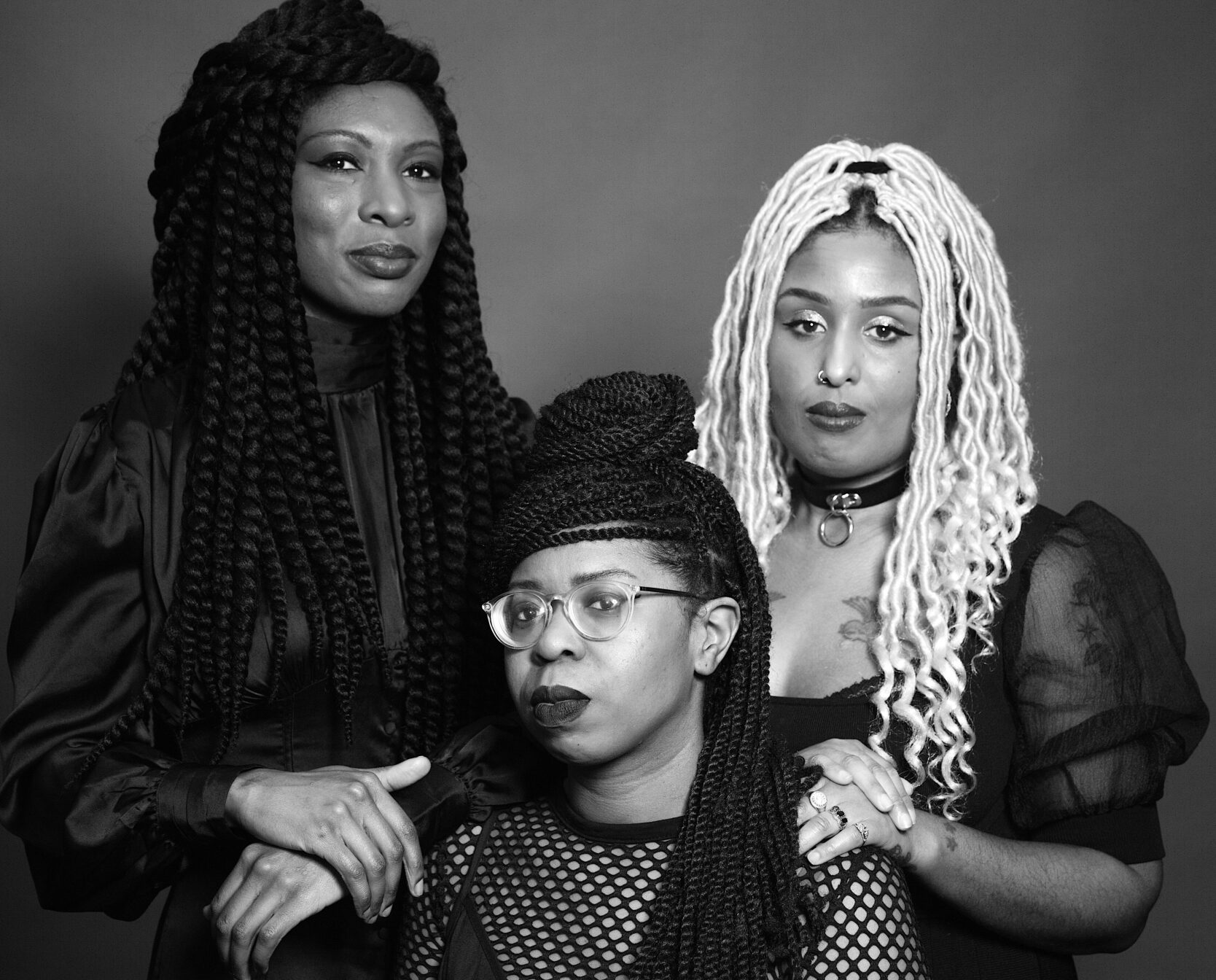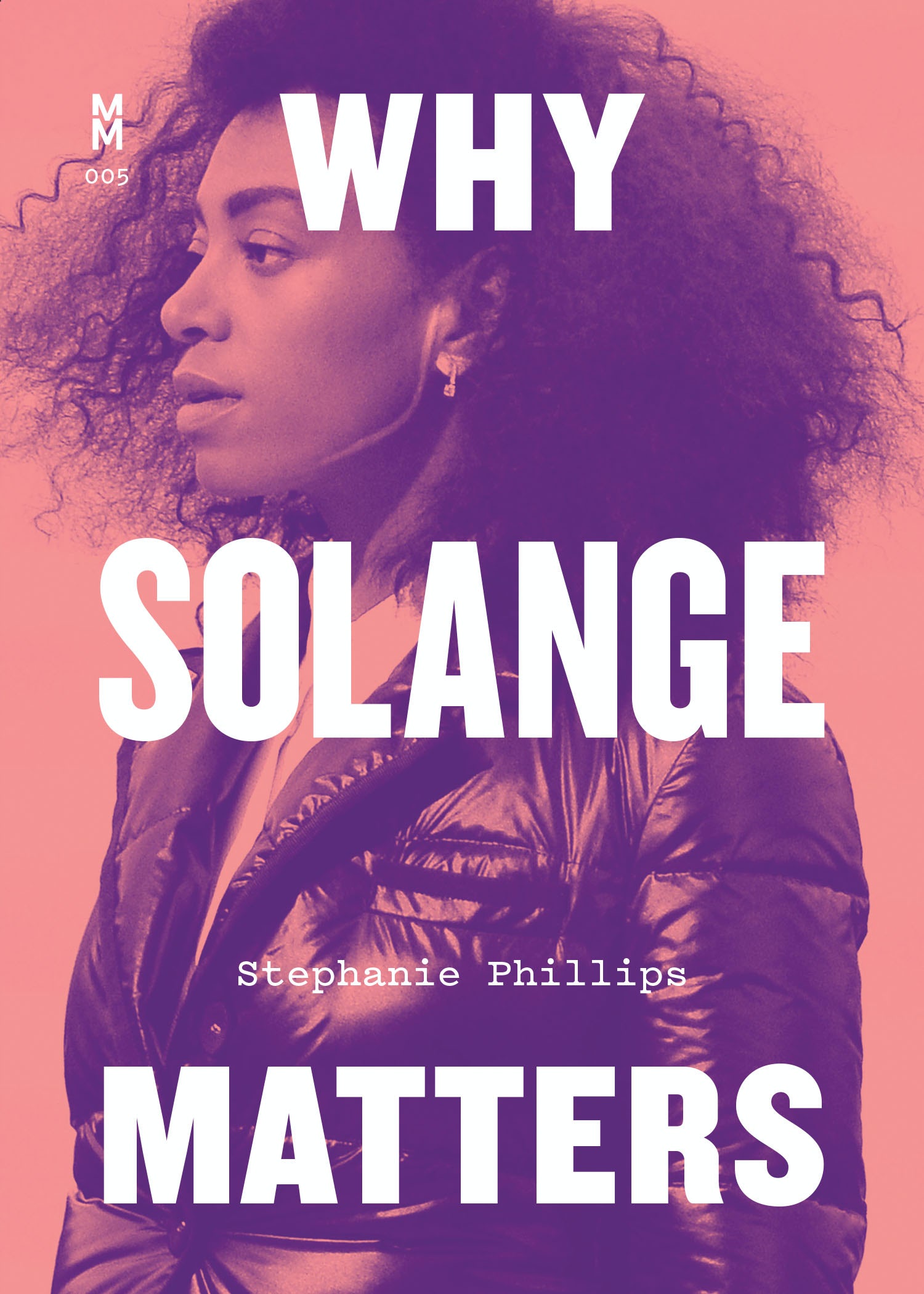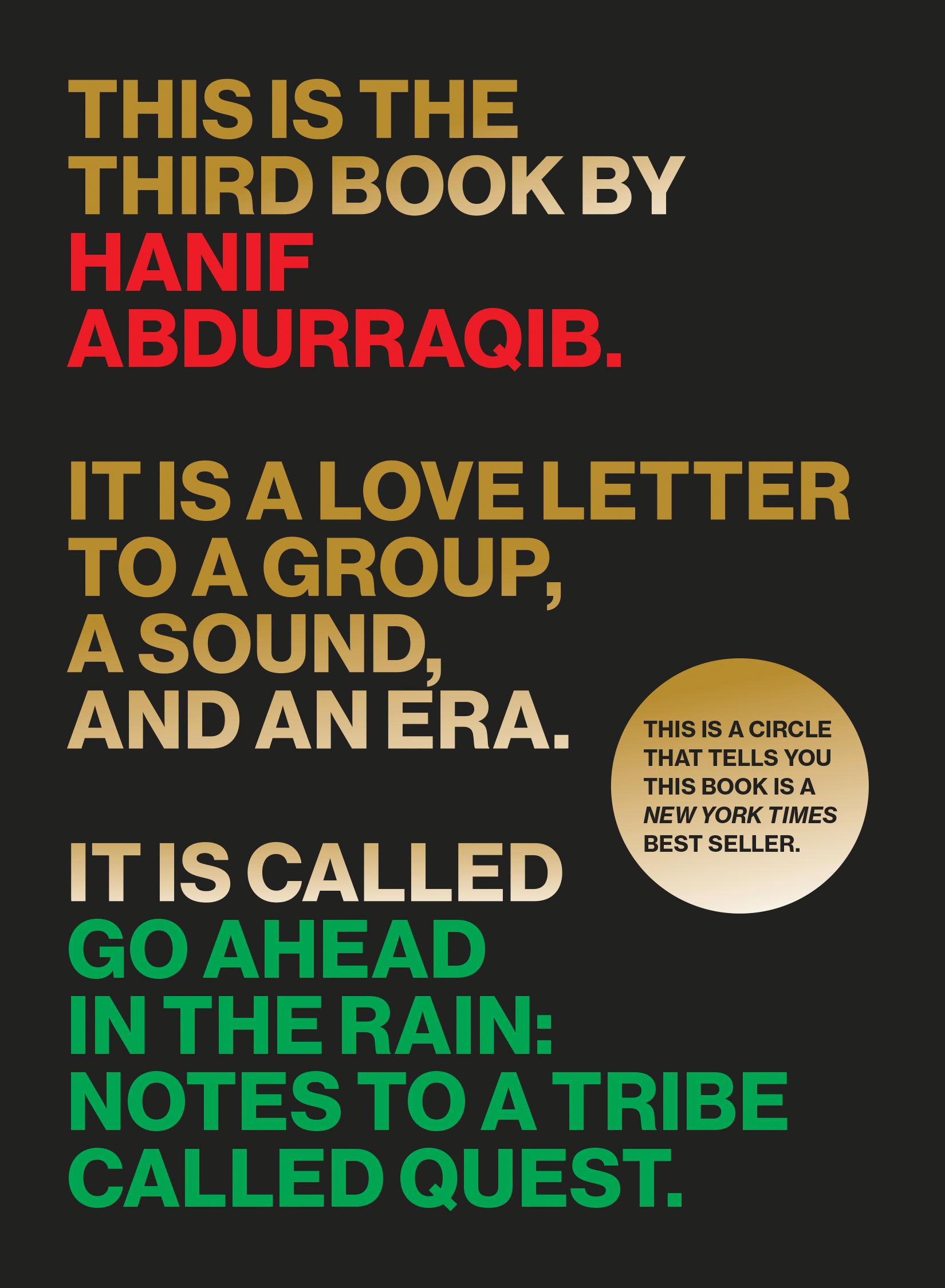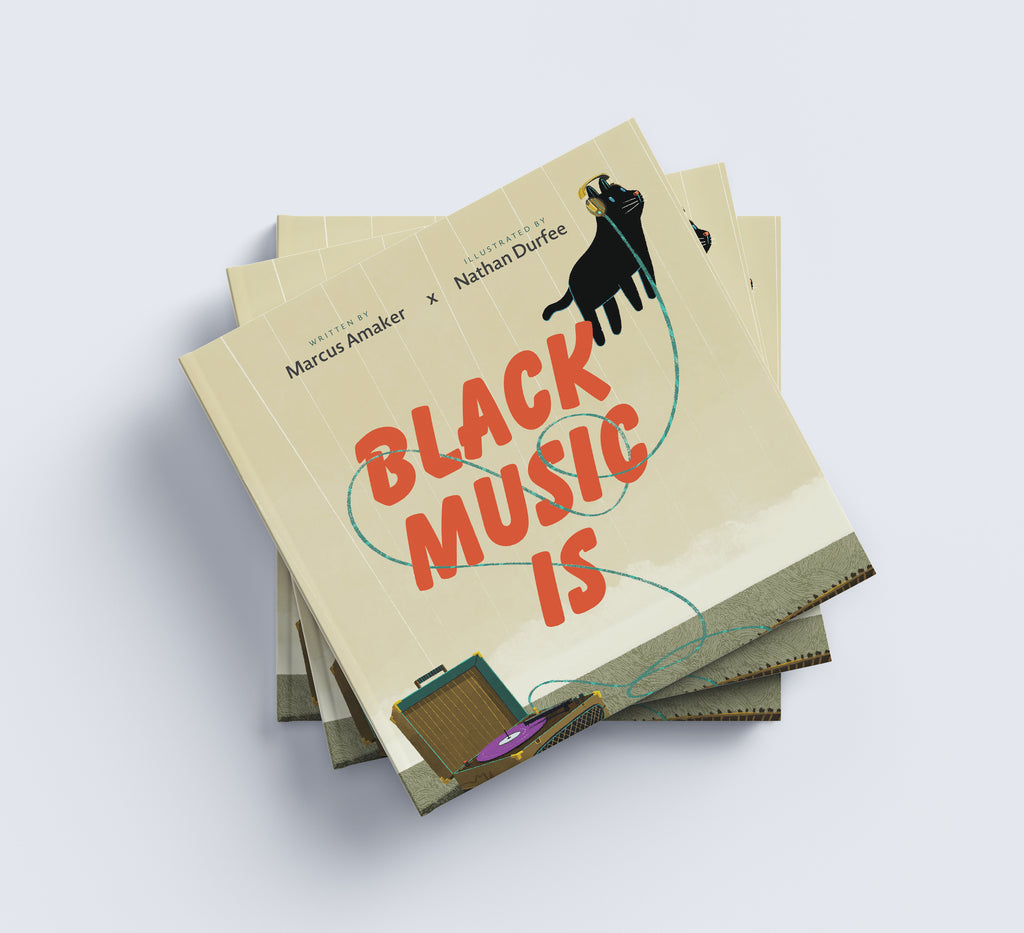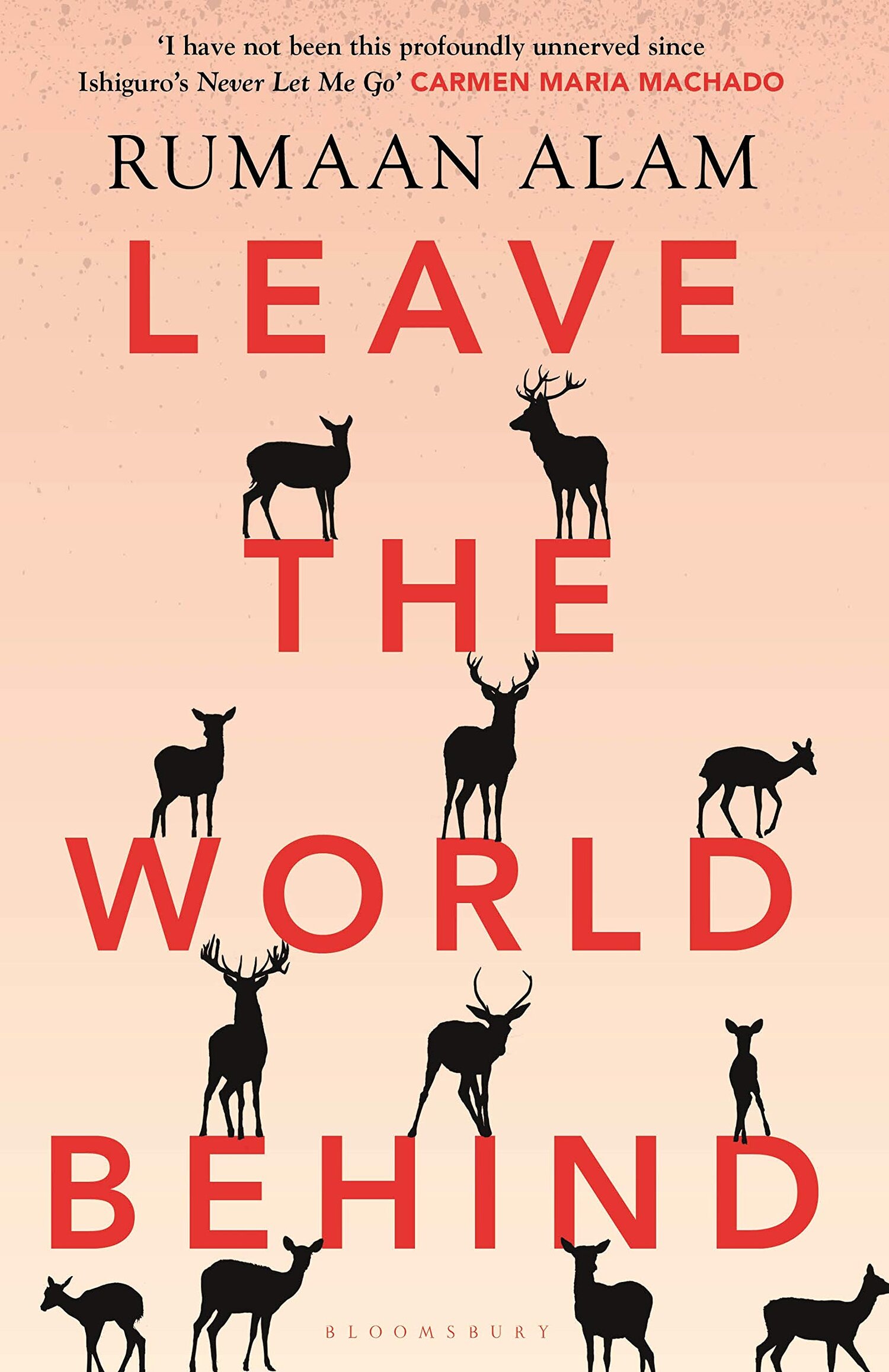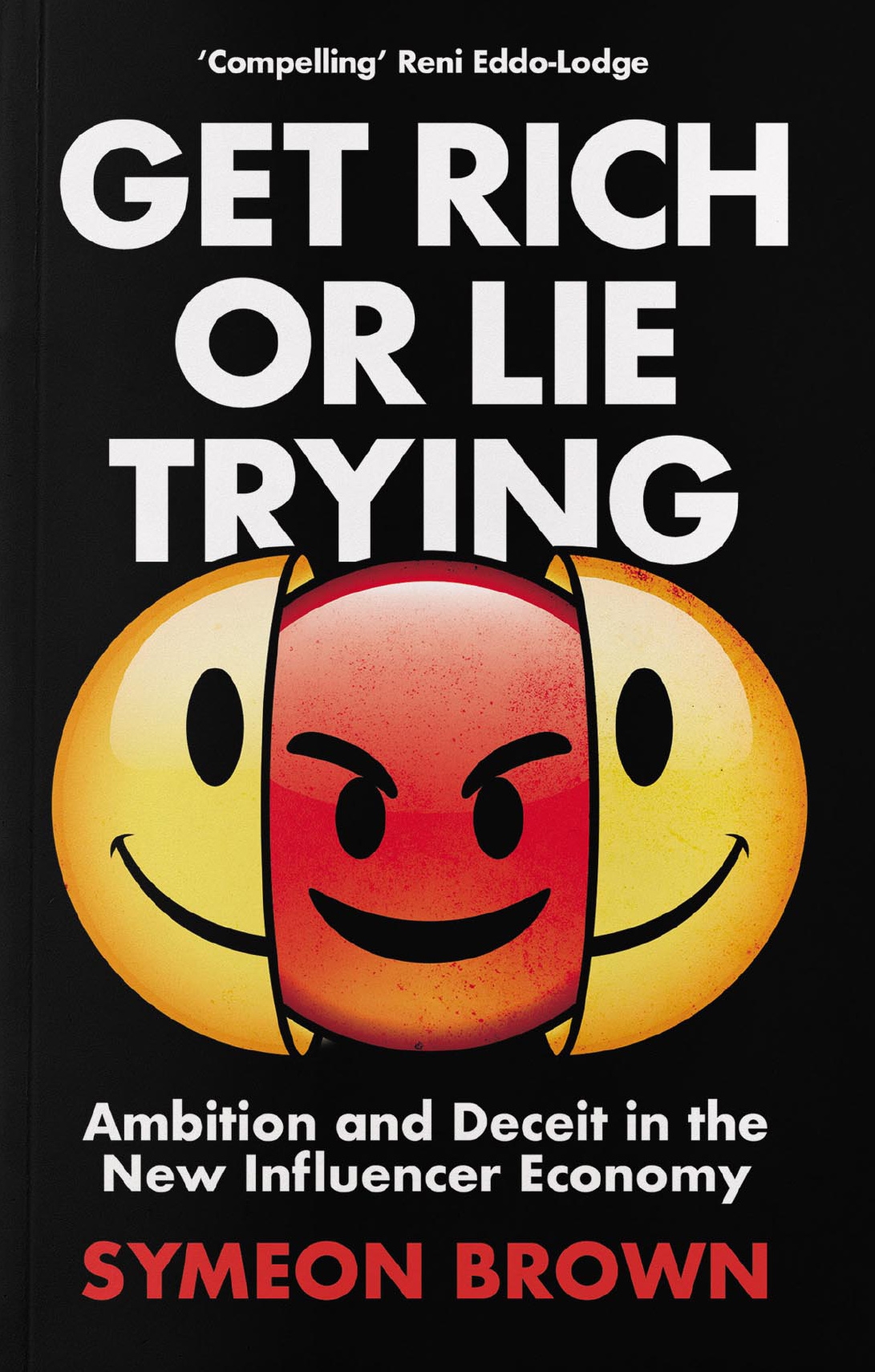Book Club is a monthly series from Speedy Ortiz’s Sadie Dupuis, exploring the literature that inspires some of our favorite musicians. Whether it’s a music biography that got them through the slog of touring, the poetry collection that eked into their most poignant lyrics, or the novel that sparked a rock opera, we’ll get to the bottom of it so you can add it to the top of your book stack. This month, we speak to Stephanie Phillips of Big Joanie.
“When I read, I want to disappear into a page. I want it to continue, and to grasp on,” says Stephanie Phillips, explaining her adoration for long-form essays. A prolific journalist and music critic for British outlets including the Guardian and the Independent, as well as the guitarist and primary vocalist of Big Joanie, Phillips formed the band in 2013 alongside drummer, writer and union chair Chardine Taylor-Stone. With passionate performances that pair riot grrl angularity, post-punk rhythmic ambition, and tautly woven girl group harmonies, Big Joanie centered Black feminism in a DIY scene that then lacked intersectionality. Joined by bassist Estella Adeyeri in 2017—an activist who gives her time to Decolonise Fest, Girls Rock London, and the Good Night Out campaign—the trio released their first album, Sistahs, in 2018. A garage-rocking cover of Solange’s “Cranes in the Sky” was released on Third Man Records in 2020; a year later, Phillips published her first book, Why Solange Matters, with University of Texas Press. Back Home, Big Joanie’s second record and first for venerated indie label Kill Rock Stars, arrives this November; with New Romantic synth textures, expanded drum machine beats, and string overdubs from No Home’s Charlotte Valentine, the collection sees Big Joanie decked out in a more lustrous sound, though never losing its punk bustle.
Phillips left the band’s home base of London just last year, citing a need for her own space and climbing rent prices. She videos from her new flat in Birmingham, which has gorgeous evening light, a bevy of potted plants, and what seems like a cozy couch to write from—not to mention, it has a place of honor for Phillips’ expansive bookshelf, which she runs over to several times during our conversation to show off all her favorites. Big Joanie is now spread across the U.K., with Taylor-Stone in Manchester and Adeyeri holding it down in London. Despite the distance, the band was able to join Phillips close to her home just a few days ago at the Coventry Central Library. It was the band’s second time playing a show for the long-running Get It Loud in Libraries concert series, but the novelty had not worn off. “It’s such a nice thing, because you get people from the community who may not have come to a gig before,” gushes Phillips. “It’s quite weird to be making lots of noise where there are books, but it was a great gig, and there were a lot of kids there with families.”
Prior to her work as an arts and culture journalist, Phillips’ road as a writer included a stint in food copywriting—though she says that the genre has some key regional differences in her country. “In the U.K., there isn’t a lot of good food writing—it’s a pastime for the upper classes,” she says. “That’s why they’re all very posh—so it’s not as good as American food writing!” She mentions Jonathan Nunn’s Vittles and Alicia Kennedy as two favorites who are doing interesting things with the form. Class analysis permeates much of Phillips’ literary thinking, making for a considered tour through her favorites in music history, feminist writing, and suspenseful fiction.
SPIN: The Music Matters series straddles such a unique voice between fan memoir and artist biography. When you started writing Why Solange Matters, what influenced your writing style?
Stephanie Phillips: My editors were interested in making [the book] more about my journey as a fan and musician, and reflecting that through Solange—because she’s such a great representation of how Black culture has evolved, and how our approach to women in music has evolved. They recommended I read another book in the series, Why Karen Carpenter Matters by Karen Tongson. It’s told through a unique version of the writer’s story, and her parents’ connection to the Carpenters through the Philippines. Also, Jenn Pelly’s [33 ⅓] book The Raincoats—I thought I knew the story of the Raincoats, but reading it through Jenn’s eyes and writing was really interesting for me.
You’re working on a second book, We Were Here, a history of Black artists’ contributions to alternative music. Has anything inspired that one?
I’ve been trying to cover different aspects of this topic throughout my career, but there hasn’t been a book in print that’s just about the Black influence on punk and alternative music. I felt it was overdue and necessary. I’m still considering the shape the book can take. I want it to be a proper cultural analysis, because we need that history and groundedness.
I always liked Girls to the Front by Sara Marcus—it’s a good introduction into how to write music history. I loved Kristin Hersh’s Rat Girl; it’s such an interesting diary of one year of her life, but structured in this unusual way that tracks her mental decline. I really liked What Are You Doing Here? by Laina Dawes, a focus on Black women in the metal scene. The Carrie Brownstein book [Hunger Makes Me a Modern Girl] is really cool as well. I never expected to get a Sleater-Kinney book; they broke up and there was a long period when they were all doing separate things.
Sistahs was the first record released by Ecstatic Peace Library, an art book publishing imprint. Were you a fan of their literary output?
We didn’t really expect anything when we bumped into [editors] Thurston [Moore] and Eva [Prinz] at a gig, but they were really enthusiastic to make something from the publishing company they already had. It was a dream scenario when we met them, and they showed us quite a lot of their books. I really loved [Minor Disturbance: The Rise of DC Hardcore] which documents Henry Rollins and the early DC punk scene, when they were all working at the Häagen-Dazs store. There’s also a book on the Norwegian black metal scene [The Death Archives: Mayhem 1984-94 by Jørn Stubberud] that’s really interesting because that scene is so weird.
Who are your favorite essayists?
I’ve loved reading Hanif Abdurraqib’s books. I was reading Go Ahead in the Rain, and I think he’s such an interesting writer, not limited by any topic or genre. I’ve really enjoyed Jia Tolentino’s Trick Mirror, which was an inspiration for “Confident Man” on [our new] album. It was interesting to read an American perspective on the conman, and how it’s an intrinsic part of society. People are so used to the idea of scamming that it’s almost become glorified or aspirational.
Have other books directly inspired lyrics on this record or previous Big Joanie releases?
Off the top of my head, I’d say Melissa Harris-Perry and her work in Sister Citizen. She outlines a theory about Black women trying to navigate the reality of a world that’s sexist and racist. She compares it to being locked in a room where everything’s crooked, and how the world we live in has distorted around us to try to make us fail, and to believe that we’re crooked as well. I immediately wrote a song about it. [“Crooked Room.”]
Chardine also has a book forthcoming, Sold Out: How Black Feminism Lost Its Soul. Do you compare publishing notes with one another?
I’m really looking forward to reading Chardine’s book, because it’s an interesting topic that hasn’t really been picked apart: the ways in which Black feminism has changed in the past couple years. When my book came out, I gave Chardine any advice I could as to what to expect and how to plan and how not to be discouraged about deadlines. And Chardine’s given me advice as well. She got me Trouble the Waters, a very cool Afrofuturist book, which is on my reading list as well. But actually, we all give each other advice and books!
What have all three of you loved?
Probably something by bell hooks… wait, Sisters of the Yam! Because every Black woman has read Sisters of the Yam. [Laughs] But it is a very unifying text, and something everyone needs to read—people other than Black women as well—to figure out why you feel stress or deal with things in the way you deal with them.
Big Joanie was included in Black Music Is, a children’s book by Marcus Amaker given out for free in South Carolina schools. That’s so cool.
It was a really sweet experience, and nice that someone would want to document what we’re doing, and think it’d be relevant to kids and what they might aspire to. And it’s cool to get more Black people in children’s books, as we’re rarely there.
Did you read a lot of children’s books growing up?
I read a lot of the English collections like Famous Five and Secret Seven by Enid Blyton. She wrote loads and loads of books—and is a massive racist! But before we knew she was racist, the stories were good. [Laughs.] One book that really was influential on me was Guitar Girl by Sarra Manning, which is about this cool teenage girl who was in a band that got signed. An epic story for a teenager who was into punk and indie and guitars.
Do you still read fiction?
I recently got this recommendation at the Galway Literature Festival for Rumaan Alam’s Leave the World Behind. It’s a book about an upper-middle-class American family that goes away for a holiday and all this weird stuff happens. It’s really tiny—what could happen in the space of these couple words? But a lot happens! It’s a bit Halloween-y. I liked the Janelle Monáe book that came out recently, [The Memory Librarian]. It’s an interesting Afrofuturist book that’s a collaboration with other Black writers. She developed a story from her music videos, and other writers wrote that story into this collection. And I’m excited about Megan Nolan’s Acts of Desperation—she’s a really interesting writer.
What do you recommend in non-fiction?
Nathalie Olah is an amazing working-class writer from the U.K. and her book Steal As Much As You Can is really different. There’s not a lot of good writing on austerity from working-class people in the U.K. Again, journalism’s really hard to get into for anyone who’s not upper class and white, so there are communities who have been hit so hard and they don’t have a voice in how it’s covered. The Good Immigrant is a good book in terms of British immigrant culture and again, an issue that’s not been covered a lot in books, because of privilege. It was edited by Nikesh Shukla, an amazing writer as well. But that was very influential and helped get a lot more people in the U.K. into publishing. And finally, Get Rich or Lie Trying by Symeon Brown. He’s a really interesting journalist and presenter on Channel 4 news, one of our main news programs in the U.K. It’s about the idea of hustle culture and influencer culture, and how people are doing anything to make money. I was reading this on holiday this year—which was my first holiday in four years!
It’s important to take those!
I know that now!

